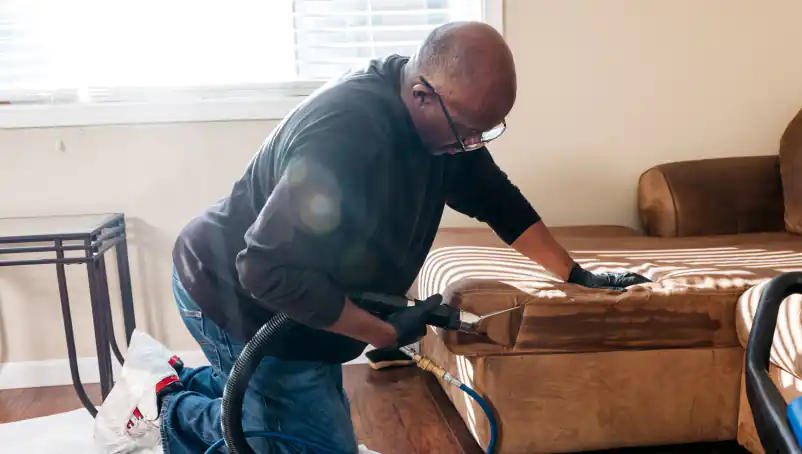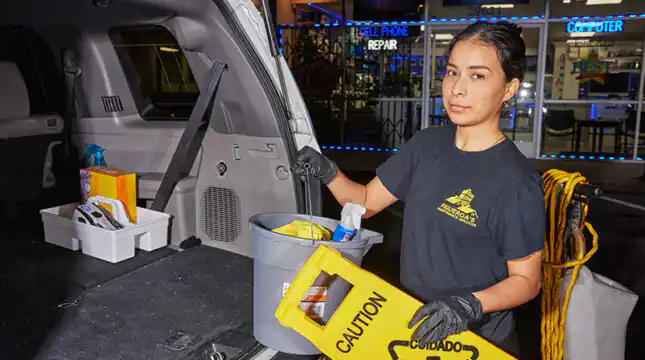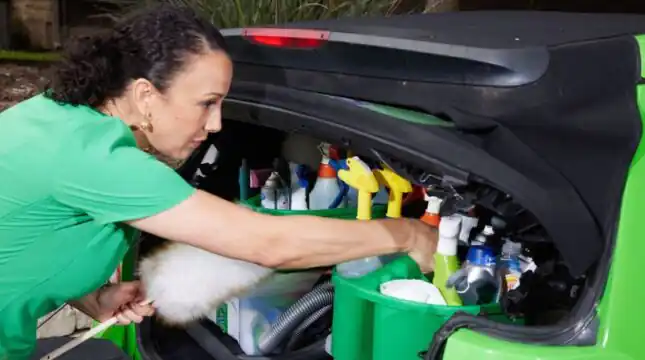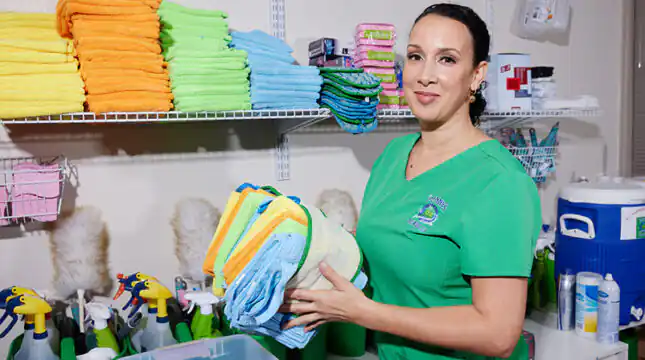Ready to launch your cleaning business in New York? Follow these steps to ensure compliance from day one.
Read more: How to start a cleaning business. Get tips for your business plan, finances and marketing.
1. Choose your New York business structure
Register your cleaning business structure with New York State to establish your legal identity. A limited liability company (LLC) provides liability protection and increased credibility. At the same time, sole proprietors have a more straightforward setup but assume personal liability.
You will file in your county or with the Department of State, depending on your structure. Filing fees vary:
- LLC: $200
- Corporation: $125
- General Partnership: $50
- Limited Partnership: $200
If you operate a sole proprietorship, you aren’t required to register your business with the state. However, it’s essential to understand the distinctions between independent contractors, LLCs, and sole proprietors.
2. Register a DBA (“Doing Business As”)
If your cleaning company uses a business name different from your legal name, you must file a DBA with the New York Secretary of State. Filing typically costs about $25, plus any additional county fees.
3. Get your Employer Identification Number (EIN)
An EIN helps separate your personal finances from your business activities, reducing your personal liability and simplifying tax reporting. Apply online at IRS.gov — it’s free, quick and essential for business banking and taxes.
4. Secure your New York state business license
Most businesses in the state of New York must obtain a general business license from the state to operate legally. The New York Secretary of State issues business licenses.
Currently, New York does not require cleaning-specific occupational licenses at the state level.
5. Obtain a Certificate of Authority (Sales Tax Certificate)
Cleaning businesses in New York must collect sales tax on services. A Certificate of Authority authorizes your business to legally collect and pay these taxes to the state. Apply online with the New York State Department of Taxation and Finance — there’s currently no fee to apply.
Local licenses and permits for NY cleaning companies
After satisfying the State’s requirements, it’s equally important to adhere to local regulations. Each city or county in New York may have specific licenses or permits you need to operate legally. Check with your area’s city or county clerk to determine these local requirements.
New York City (NYC) cleaning business requirements
- Business certificate: If you’re operating under a name different from your legal name (i.e., a trade name), you must file a Certificate of Assumed Name with the county clerk’s office in the borough where your business is located.
- Additional permits: While there’s no specific license for cleaning services, depending on the nature of your operations, you may need to obtain other permits or licenses. Use the NYC Business Wizard to determine all requirements for your specific business activities.
Buffalo, New York cleaning business requirements
- General business license: Buffalo requires certain businesses to obtain licenses to ensure the health and safety of its citizens. While there’s no specific license for cleaning businesses, it’s essential to check with the Office of Licenses to determine if your cleaning business requires a general business license.
- Zoning: If you plan to operate from a physical location, ensure that the property is zoned appropriately for your business activities. The Zoning Department can provide guidance on permissible uses for specific locations.
Rochester, New York cleaning business requirements
- Business licenses: Rochester mandates business permits for specific types of businesses, including restaurants, bars, auto repair shops and salons. Cleaning businesses are not explicitly listed; however, it’s recommended to consult with the Department of Neighborhood and Business Development to confirm if a permit is necessary for your operations.
- DBA registration: If operating under a name different from your personal name, you must file a DBA certificate with the Monroe County Clerk’s Office.
Yonkers, New York cleaning business requirements
- Business certificate (DBA): If you are operating your business under a name other than your own, you must register a Business Certificate, also known as a Doing Business As (DBA) name, with the Westchester County Clerk’s Office.
Syracuse, New York cleaning business requirements
- DBA registration: If operating under a name different from your personal name, you must file a DBA certificate with the Onondaga County Clerk’s Office.
Cleaning business insurance requirements for New York
Having business insurance in New York isn’t just smart — your potential clients sometimes require it before hiring you. Here are key insurance types every cleaning business should consider:
General Liability insurance
General liability coverage can help protect your cleaning business from claims related to third-party injuries, property damage and reputational harm. It can also cover some legal fees.
This is often considered essential by clients and vendors (especially in commercial cleaning), so you’ll likely need liability coverage to provide proof of insurance. NEXT customers can access proof of coverage anytime at no additional cost.
Learn more about general liability for cleaners.
Workers’ Compensation insurance
Workers’ comp can help cover medical expenses, rehabilitation costs and lost wages if your employees are injured or become ill while performing their job. It’s required in New York for any business with employees, and it can help protect you against liability for workplace injuries.
Learn more about Workers’ Comp for cleaners.
Tools and Equipment insurance
A tools and equipment insurance policy can help cover the cost of repairing or replacing your cleaning equipment and supplies if they’re damaged or stolen. This protection can help ensure your business can continue operations smoothly without significant financial interruptions.
Errors and Omissions insurance (E&O)
This insurance can help protect your business against claims arising from professional negligence or mistakes in your cleaning services. E&O coverage can help with legal costs and damages if a client alleges your business failed to perform as promised or cost them money.
Commercial Auto insurance
Commercial auto insurance helps provide coverage for vehicles used in your business operations. It can help cover expenses related to accidents, injuries and damage to your vehicles or others involved, making it crucial if you use vehicles to travel between cleaning jobs.
In New York, drivers must have a minimum coverage of:
- $25,000 for bodily injury per person
- $50,000 for bodily injury per accident
- $10,000 for property damage per accident
Understanding bonds for your NY cleaning businesses
While not required by law in New York, getting a janitorial bond can boost your credibility with clients. Janitorial bonds protect clients from employee theft or dishonesty, assuring customers you’re reliable and trustworthy.
Important: Bonds differ from insurance. NEXT offers simple, affordable insurance coverage, but we currently do not offer bonds.






